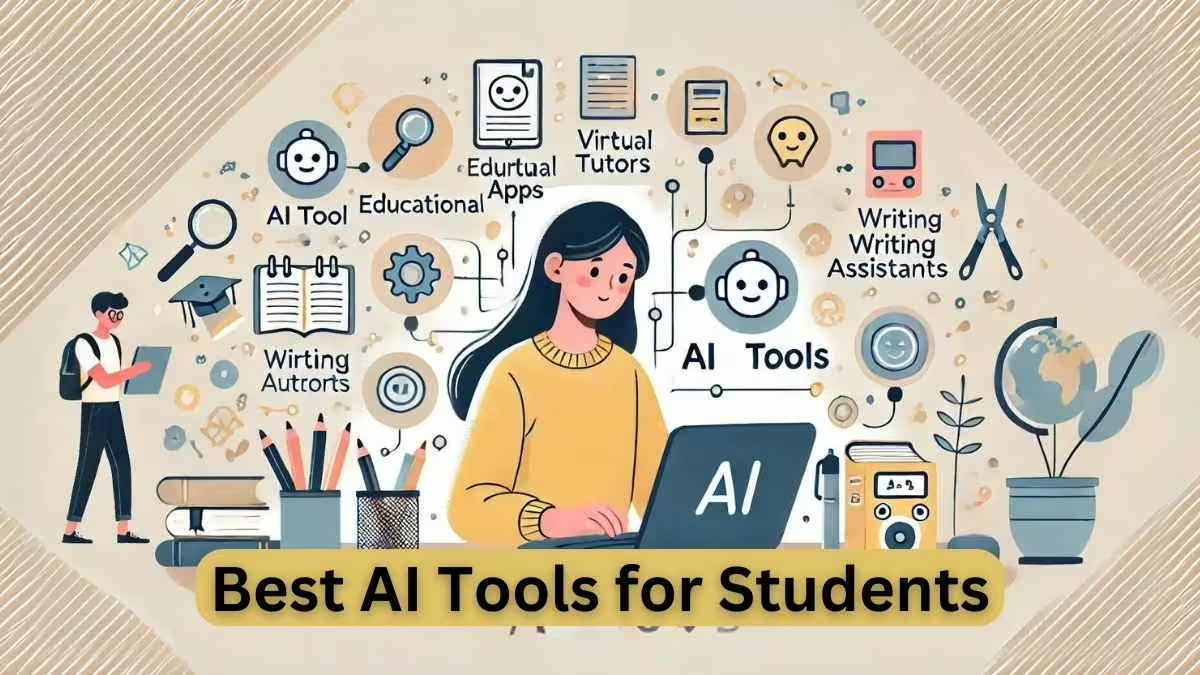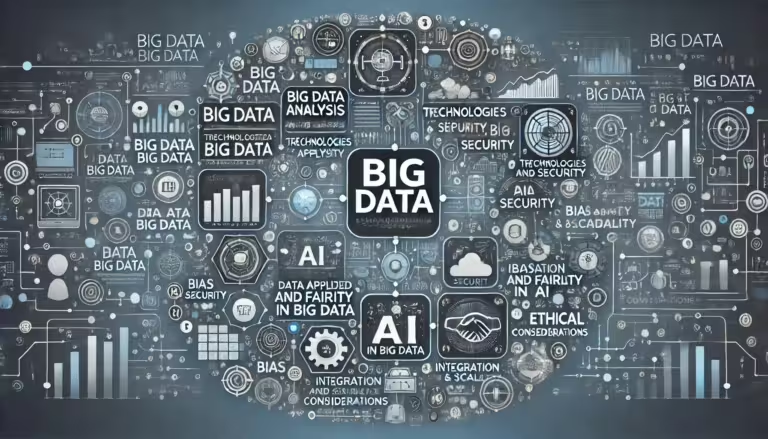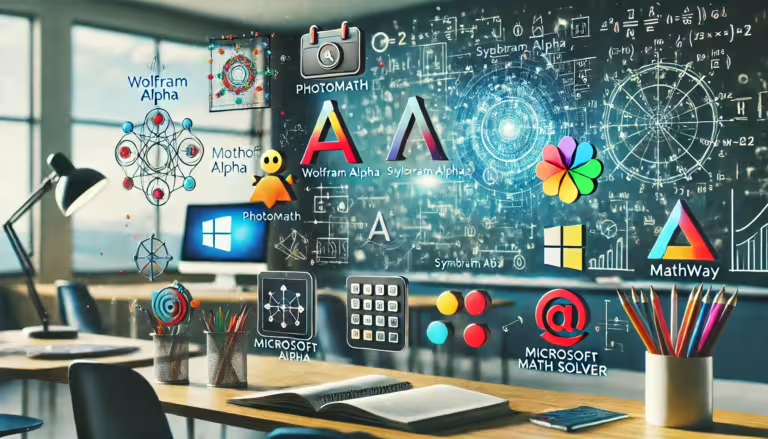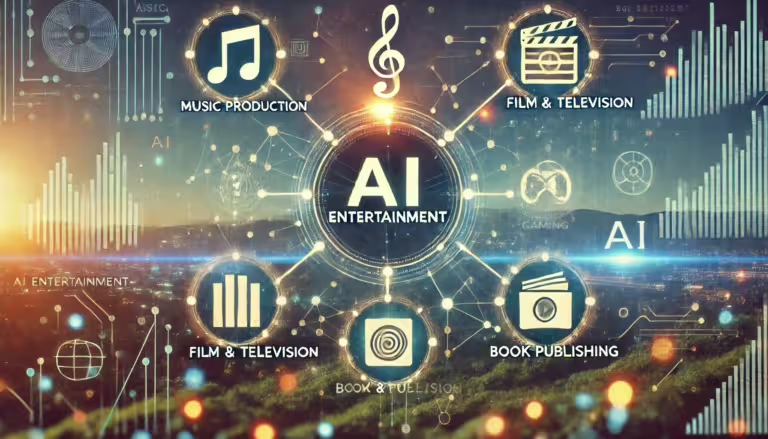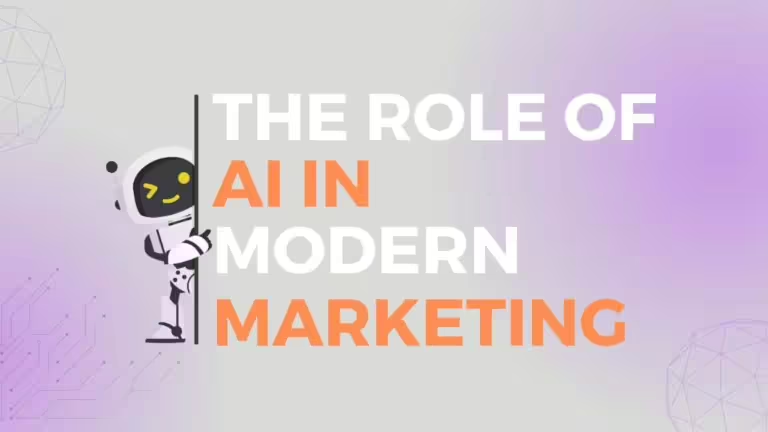Artificial Intelligence (AI) is increasingly becoming a vital part of education, providing students with tools that enhance learning, productivity, and research capabilities. From AI-powered study aids to academic research tools, the best AI tools for students are designed to streamline the learning process and improve academic performance.
The Role of AI in Modern Education
AI has revolutionized modern education by offering personalized learning experiences and intelligent tutoring systems. These technologies help bridge the gap between traditional classroom instruction and individual learning needs, ensuring that students receive tailored support that can adapt to their unique learning styles and paces.
AI tools have also made education more accessible by providing support for students with disabilities or diverse learning styles. For example, AI-powered speech recognition software can assist students with speech impairments, enabling them to actively participate in classroom discussions.
Related Post : 10 Best AI Tools For Making Presentations
Top AI Websites for Students
Several AI websites stand out due to their exceptional features and benefits for students. Some of the best AI websites for students include:
- Khan Academy: Utilizes AI to provide personalized learning experiences, adaptive exercises, and real-time feedback.
- Quizlet: Offers AI-powered study tools and flashcards that help students memorize and understand complex concepts.
- Duolingo: An AI-driven language learning platform that provides personalized lessons and practice exercises.
These websites not only enhance learning but also make studying more engaging and efficient.
AI-Powered Study Aids
AI-powered study aids are transforming how students approach learning. These tools use advanced algorithms to analyze student performance, identify areas of weakness, and provide personalized recommendations. Some notable AI-powered study aids include:
- Socratic by Google: Uses AI to help students understand homework problems through step-by-step explanations and video tutorials.
- Brainly: An AI-driven platform where students can ask questions and get detailed answers from experts and peers.
By leveraging these tools, students can get the support they need to excel in their studies.
Best AIs for Student Productivity
Productivity is key to academic success, and AI tools can significantly enhance student productivity. Some of the best AIs for student productivity include:
- Grammarly: An AI-powered writing assistant that helps students with grammar, spelling, and style corrections.
- Notion: An AI-driven productivity tool that assists in organizing notes, managing tasks, and collaborating on projects.
- Forest: Uses AI to help students stay focused by gamifying the process of staying off their phones while studying.
These tools help students manage their time effectively and stay focused on their academic goals.
AI Tools for Academic Research
Academic research can be time-consuming, but AI tools are making the process more efficient. Some of the best AI tools for academic research include:
- Semantic Scholar: Uses AI to help students find relevant research papers and summarize key findings.
- Mendeley: An AI-driven reference manager that assists in organizing research papers and generating citations.
These tools streamline the research process, making it easier for students to find and organize relevant information.
Best AI Writing Assistants for Students
Writing is an essential skill for students, and AI writing assistants can help improve their writing quality. Some of the best AI writing assistants for students include:
- Grammarly: Provides real-time grammar and style suggestions, helping students produce clear and error-free writing.
- Hemingway Editor: An AI tool that highlights complex sentences and common errors, promoting simpler and more readable writing.
By using these tools, students can enhance their writing skills and produce high-quality essays and reports.
AI in Language Learning
Language learning can be challenging, but AI tools are making it more accessible and effective. Some of the best AI tools for language learning include:
- Duolingo: Offers personalized language lessons and practice exercises based on the learner’s progress.
- Babbel: Uses AI to adapt lessons to the learner’s level and provide real-time feedback.
These tools provide an interactive and personalized language learning experience, making it easier for students to learn new languages.
AI Tools for STEM Subjects
STEM (Science, Technology, Engineering, and Mathematics) subjects often require specialized tools to aid learning. AI tools designed for STEM subjects include:
- Photomath: An AI-powered app that helps students solve math problems by providing step-by-step solutions.
- Wolfram Alpha: Uses AI to provide detailed explanations and solutions for complex mathematical and scientific queries.
These tools help students understand difficult concepts and solve problems more efficiently. The best AI tools for students in STEM subjects enhance comprehension and application of critical concepts.
Best AI Tools for Collaborative Learning
Collaborative learning is an essential part of education, and AI tools can facilitate this process. Some of the best AI tools for collaborative learning include:
- Microsoft Teams: An AI-driven platform that supports collaboration through chat, video conferencing, and file sharing.
- Google Workspace for Education: Provides AI-powered tools for document creation, sharing, and collaboration.
These tools help students work together more effectively, whether in the classroom or remotely.
AI for Test Preparation
Preparing for tests can be stressful, but AI tools can help students study more effectively. Some of the best AI tools for test preparation include:
- Khan Academy: Provides personalized practice exercises and feedback based on the student’s performance.
- Quizlet: Uses AI to create custom study plans and flashcards tailored to the student’s needs.
By using these tools, students can focus their study efforts on the areas where they need the most improvement. The best AI tools for students in test preparation help ensure readiness and confidence.
AI in Personalized Learning
Personalized learning is one of the most significant benefits of AI in education. AI tools can adapt to each student’s learning style, pace, and needs, providing a customized learning experience. Some notable AI tools for personalized learning include:
- DreamBox: An adaptive math program that adjusts lessons based on the student’s progress and performance.
- Smart Sparrow: Uses AI to create personalized learning paths for students, ensuring they receive the support they need to succeed.
These tools help students learn at their own pace and focus on areas where they need the most help.
Future of AI in Education
The future of AI in education looks promising, with advancements expected to further enhance learning and teaching. Future developments may include:
- More intuitive AI tutors: Capable of understanding and responding to student queries more naturally.
- Enhanced data analytics: Providing deeper insights into student performance and learning patterns.
- Greater accessibility: Making high-quality education tools available to students worldwide.
As AI technology continues to evolve, it will play an increasingly important role in shaping the future of education.
Challenges and Ethical Considerations
While AI offers numerous benefits, there are challenges and ethical considerations to keep in mind:
- Data privacy: Ensuring that student data is securely handled and protected.
- Bias in AI algorithms: Addressing potential biases to ensure fair and equitable learning experiences.
- Dependence on technology: Balancing the use of AI tools with traditional learning methods.
By addressing these challenges, educators and developers can ensure that AI tools are used responsibly and effectively.
Case Studies of AI in Education
Several case studies highlight the impact of AI tools in education:
- Khan Academy: Reports significant improvements in student performance and engagement through personalized learning experiences.
- Duolingo: Shows increased language proficiency and retention rates among users compared to traditional methods.
- Photomath: Demonstrates improved math skills and understanding among students using the app.
These case studies illustrate the real-world benefits of integrating AI tools into educational practices.
Also Read: Best AI Tools For Content Writing
Conclusion
AI tools for students are transforming the educational landscape, offering innovative solutions that enhance learning, productivity, and research capabilities. From personalized learning experiences to AI-powered study aids, these tools provide valuable support to students, helping them achieve academic success. By leveraging the best AI tools for students, educators and learners can create a more engaging, efficient, and effective educational environment.
FAQs
What are the best AI tools for students?
Some of the best AI tools for students include Khan Academy, Quizlet, Duolingo, Grammarly, and Notion.
How do AI tools help in education?
AI tools assist in personalized learning, improving productivity, aiding academic research, and enhancing writing skills, making education more efficient and effective.
Can AI tools replace traditional learning methods?
AI tools are designed to complement traditional learning methods, not replace them. They provide additional support and resources to enhance the learning experience.
Are AI tools for students expensive?
The cost of AI tools varies. Many tools offer free versions or affordable pricing plans, making them accessible to a wide range of students.
How do AI tools improve student productivity?
AI tools improve student productivity by providing organizational tools, grammar and style checks, and study aids that streamline the learning process.
What is the future of AI in education?
The future of AI in education includes more intuitive AI tutors, enhanced data analytics, and greater accessibility, further enhancing learning and teaching experiences.
